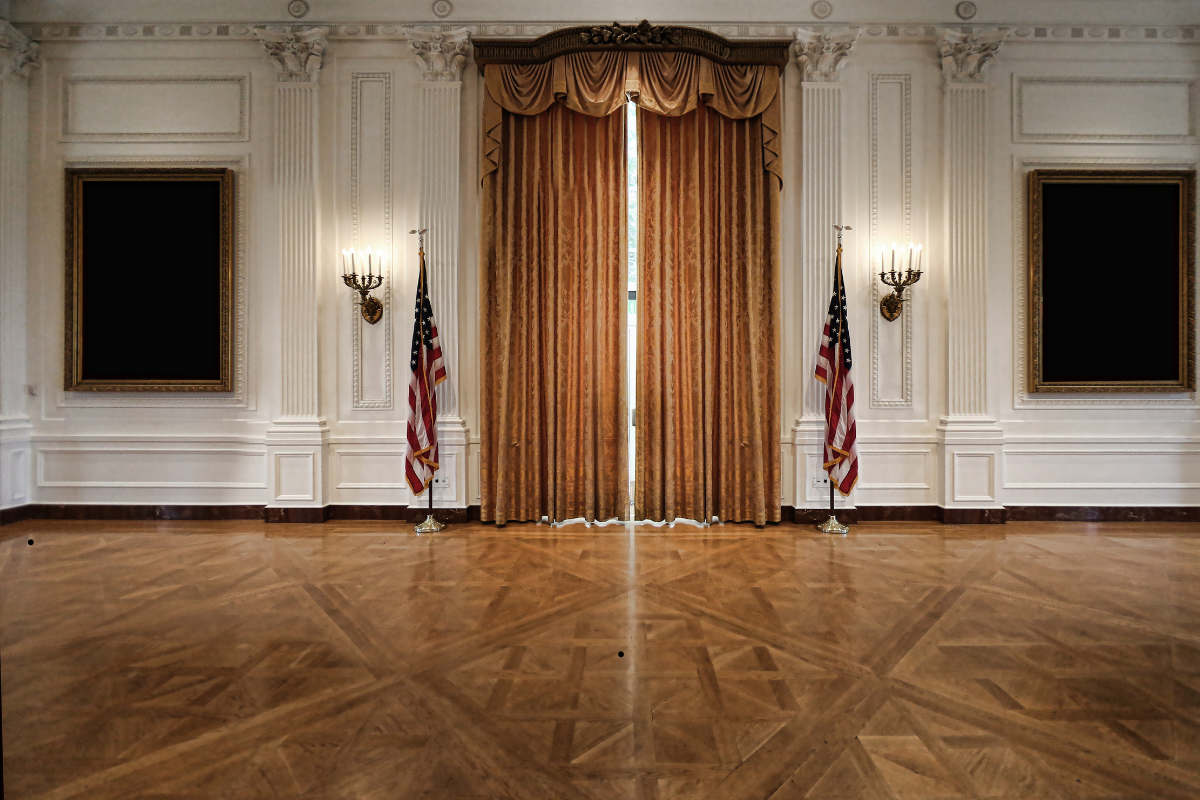Federalist 55 Part II
Last week I began the discussion of Federalist 55 by reviewing some of the arguments concerning representation. I suggested that in some ways the argument might seem arcane to us, given our familiarity with the current composition of Congress. Yet, despite that, Americans are unhappy with Congress as an institution, not only because it doesn’t get things done, but because it doesn’t represent the interests of the average American. Given the advantages of incumbency and given the background of many members, Congress seems insular and its members increasingly out of touch with their constituents. Add to this the emoluments of the office, not the least of which is some members having their investment portfolios vastly outperforming market averages, and it raises the suspicion that individuals run for those offices for often the wrong reasons – or at least stay there for the wrong ones. Ambition and enrichment rather than service and devotion seem motivating factors.
Representation was never supposed to be about whether someone had sufficient fame or wealth to pursue office, nor whether the representative shared physical characteristics with constituents. Debates concerning “Who should represent us?” revolved around three concerns: the sense of place, the various classes and vocations that make up a social economy, and whether the representative had sufficient character to be entrusted with the responsibility. In the background was the old idea that people who wanted the job too badly probably couldn’t be trusted with it – their motives rendered suspect by the act of running.
The suspicion attached not only to people seeking the job, but to what might happen to that person once he got elected, especially if he remained in the capitol for long periods of time. Disconnected from place, those representatives would take on a foreign set of interests, their character winnowed by the constant friction of political life, their sense of economic well-being corrupted by making a living off taxpayer largesse. Once separated from hearth and kin, representatives would find temptation lurking everywhere and increasingly difficult to resist, bringing with it the forked tongue of rationalization.
The Anti-federalist response to this was clear: rotation in office, sufficient numbers to reflect the variety of interests, and immediate rather than mediated knowledge of candidates. The convention may have settled on 30,000 as the compromise number, but even at the time many Anti-federalists thought this too large. Who knows 30,000 people?
Madison deftly sidestepped some of these concerns in Federalist 55. “Nothing can be more fallacious,” he wrote, “that to found our political calculations on arithmetical principles.” Granted, sixty or seventy representatives might better be entrusted with power than six or seven, but it would not follow from that that 600 or 700 would be superior. The key for Madison involved the number that would allow for proper deliberation. The more people involved, the less likely sound argument would carry the day. “In all very numerous assemblies, of whatever characters composed, passion never fails to wrest the scepter from reason.”
Something happens to persons when they get in large groups. In a large assembly members would either take on the character of a mob or they would organize themselves into subgroups, each subgroup in turn organized around an interest or passion contrary to the common good. Deliberation would stultify as members increasingly contended with one another to satisfy the interests of a part either at the expense of other parts or the well-being of the whole. Under those circumstances, he feared, even persons of previously sound character would see themselves undone by the pressures of agonistic politics.
Although Publius had earlier bragged about the advances made in “the science” of representation, science itself provided no sure answer to the question of proportion. Six being too few and 600 too many didn’t mean that sixty was the right number. The census would allow for recalibrations to occur, but more importantly Americans had already taken a crack at the problem at the state level. As he frequently did, Madison turned to experience rather than abstract reasoning as a way of breaking the code. A review of state legislatures revealed no consistency in the number of representatives to citizens, buttressing Madison’s argument that no fixed ratio existed.
The Anti-federalists, he concluded, were tilting at windmills. Perhaps 1:30,000 was excessive, but they offered no reasonable alternative, or at least no alternative that would be workable. Then Madison doubled-down on his argument: not only had the Anti-federalists offered no reasonable number grounded in experience but their criticism of the large number resulted from bad faith. The Anti-federalists, he argued, feared too much the corrupting influences of power and distance and displayed too little faith in voters.
Cecelia Kenyon in her classic essay “Men of Little Faith: The Anti-federalists on the Nature of Representative Government,” wrote that the Anti-federalists “chided the Federalists for their excessive confidence in the future virtue of elected officials,” and worried that people voting in such large constituencies “would either lose elections to their presumed aristocratic opponents because of the latter’s superior capacity for organization, or would themselves let their choice fall on such aristocrats, or be deceived by ambitious and unscrupulous demagogues.”
“The Anti-federalists were not latter-day democrats. Least of all were they majoritarians with respect to the national government. They were not confident that the people would always make wise and correct choices in either their constituent or electoral capacity, and many of them feared the oppression of one section in the community by a majority reflecting the interests of another. Above all, they consistently refused to accept legislative majorities as expressive either of justice or of the people’s will. In short, they distrusted majority rule, at its source and though the only possible means of expression in governmental action over a large and populous nation, that is to say, through representation. The last thing in the world they wanted was a national democracy that would permit Congressional majorities to operate freely and without restraint.”
Madison addressed these “men of little faith” in the strongest terms. He was “unable to conceive” the idea that Americans as then constituted could ever be disposed to elect persons who would “form and pursue a scheme of tyranny or treachery.” Madison went beyond displaying such trust in voters, for neither could you find sixty-five men in America prepared “to betray to solemn trust committed to them.” Granted, things might change in the future, but as currently constituted in 1788 “the liberties of America cannot be made unsafe, in the number of hands proposed by the federal constitution.”
Part of Madison’s confidence in the incorruptibility of members of Congress arose from his acknowledgement of Congress’s limited powers. Given that the states would still have the greatest share of regulatory power (see Federalist 45), ambitious people would be more likely to want to serve in the state governments rather than the federal one. The paucity of power at the federal level, and the Constitution’s strict limitations on legislative power, would eliminate the temptations that might otherwise corrupt people. Here, again, experience gave succor to hope: the Continental Congress had successfully navigated the revolution with a similar proportion and had displayed both wisdom and incorruptibility. Americans were better than the Anti-federalists thought.
Nor, when thinking of the House, did challenges to virtue come from the other branches of government. The system of checks and balances provided the safeguards necessary to check ambition and corruption, and by systematically preventing their expression it would help keep the elected representatives pure in spirit. Even if they were tempted to expand their power and wealth, the Constitution would prevent them from doing so, thus restraining their basest impulses. The Anti-federalists, Madison argued, wanted it both ways: on the one hand they expressed the essential need for republican virtue, and on the other hand suggested that such virtue was inadequately present and accounted for. They had both too much and too little faith both in voters and politicians, undermining the very republican principle they believed they championed.
“The sincere friends of liberty, who give themselves up to the extravagancies of this passion, are not aware of the injury they do their own cause. As there is a degree of depravity in mankind which requires a certain degree of circumspection and distrust, so there are other qualities in human nature which justify a certain portion of esteem and confidence. Republican government presupposes the existence of these qualities in a higher degree than any other form. Were the pictures which have been drawn by the political jealousy of some among us faithful likenesses of the human character, the inference would be, that there is not sufficient virtue among men for self-government; and that nothing less than the chains of despotism can restrain them from destroying and devouring one another.”
The appearance of virtue in Publius’s arguments strikes the modern reader who had gone fifty-four essays with nary a mention of it (though a slight nod in #15). Indeed, Madison had until this point argued that passion and interest and ambition could be employed isometrically to yield just results, but now, under the pressure of severe Anti-federalist criticism on the point of representation, expresses his confidence that a national system not only required but also reinforced republican virtue.
How to account for the shift in emphasis? Part of it, of course, has to do with simple rhetorical strategies necessary to insure ratification. But that would be unfair to Madison who did seem to appreciate the importance of republican virtue both in voters and in elected officials. They key, I think, goes back to earlier arguments over homogeneity. Readers will recall that while the Federalists, especially Jay, asserted that America formed a homogenous society of shared ideas, beliefs, interests, Anti-federalists were skeptical of that claim. The states were too diverse in economy and culture to be consolidated into one mass society governed by a strong central government. The best security for liberty was to keep government as localized as possible, not count on the virtue of representatives people didn’t know well and whose character could not be vouched for except by the candidate himself.
Madison seems to assume here that virtue will reign at the national level, that only persons with a good reputation will ascend to office when so many votes are required for victory. The size of representation would filter out persons of meaner character. Wanting more representatives, however, did not commit the Anti-federalists to the idea of electing persons of low virtue. A representative ought to represent a place and its people, and given the lack of homogeneity in America such representation would necessarily result in intense conflict at the national level, and such conflict could only be negotiated by compromise. This meant that in the nature of things, representatives would constantly be required to sacrifice the well-being of their places and constituents either to organized majorities or to an abstract notion of “the good of the whole.” A representative assiduously defending the interests of home and kin against the interests of others might be a bad assembly member but a good representative. In any case, one man’s virtue would become another man’s vice.
The best bet was to allow people to maintain as much direct control over their lives and livelihoods as possible. Perhaps virtue might take a holiday but vice could not easily hide. Virtue may be tested by power but is seldom improved by it. Liberty might not be destroyed by consolidation but it can survive it only with great difficulty. Federalists and Anti-federalists may have agreed on “the existence of these qualities” as essential to good governance, but disagreed as to whether those qualities scaled well. Neither has this disagreement disappeared, for to this day Americans wonder whether their representatives possess “these qualities” in sufficient measure “to justify a certain portion of esteem and confidence.”
Director of the Ford Leadership Forum, Gerald R. Ford Presidential Foundation
Related Essays




